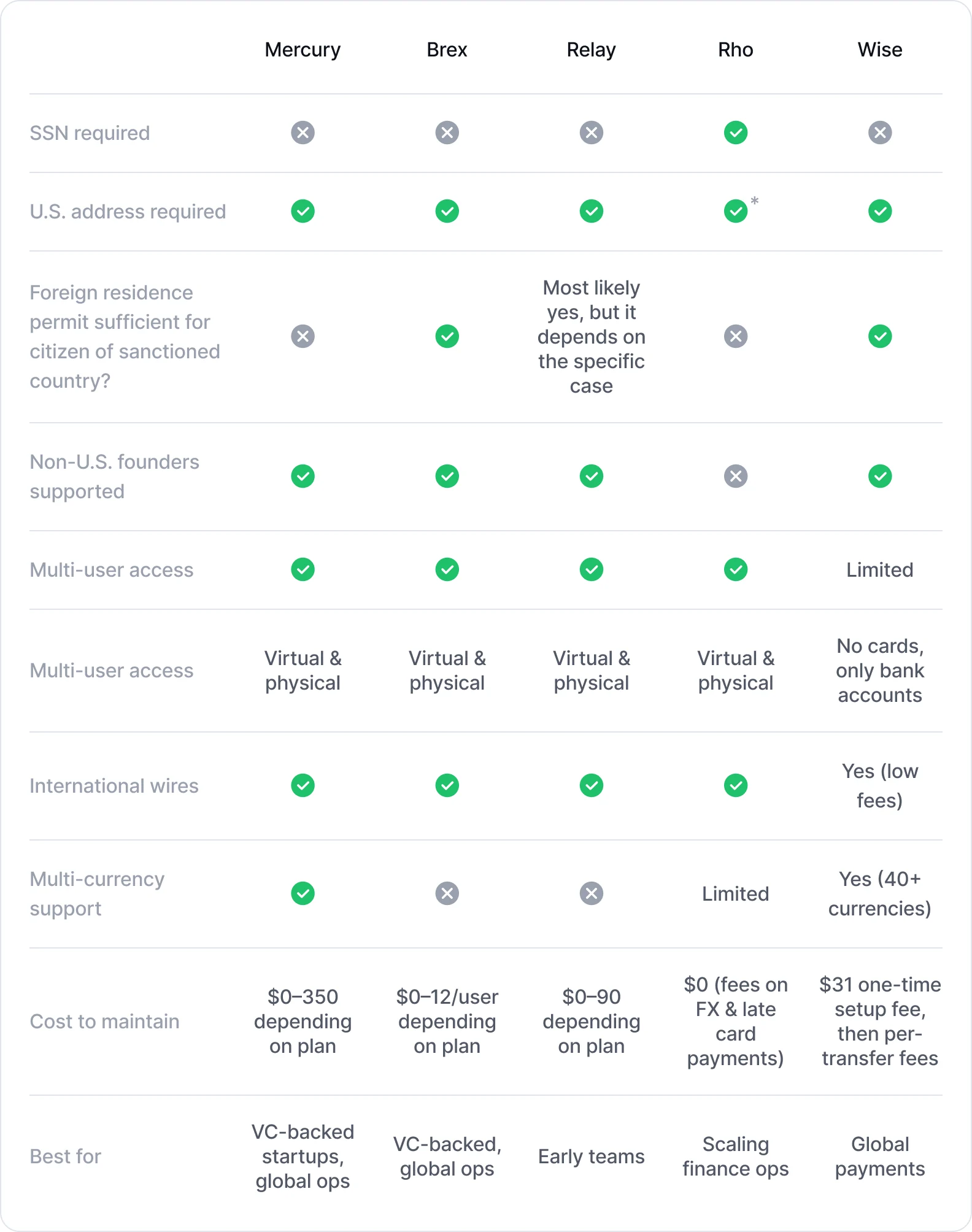
Top Neobanks for U.S. Startups in 2025
If you’re running a U.S. startup, choosing the right neobank can save you time, money, and operational stress. Whether you’re pre-seed or post-Series A, modern banking platforms offer tools that go far beyond traditional accounts. Here’s what to know before you open one.
TL;DR (Key Takeaways)
- Mercury and Brex are the go-to platforms for venture-backed startups.
- Rho works well for operationally complex teams and finance leads.
- Relay offers visibility and control for lean or early-stage startups.
- Wise is ideal for global payments and managing multi-currency accounts.
- All neobanks offer remote onboarding and FDIC coverage through partner banks.
Mercury
Mercury is one of the most popular choices for early-stage startups. It offers fast onboarding, a modern interface, and no monthly fees. Features include multi-user access, virtual and physical cards, cash sweep across partner banks, and easy integrations with Stripe and QuickBooks.
For startups holding significant cash, Mercury Vault extends FDIC coverage up to $5 million. It’s especially well suited for YC-backed or tech-focused founders looking for simplicity and scale.
Brex
Brex started as a corporate card provider but now offers a full financial stack. Their accounts come with spend management, global payments, and deep controls for finance teams. The platform is designed for VC-backed startups and requires some level of institutional funding to access. Worth noting: Brex is currently focused on working with professionally funded startups, so it may not be the right fit for bootstrapped or pre-seed teams.
Brex is especially strong for companies with distributed teams, multi-entity structures, or international contractors. It’s a great fit once you move beyond a small founding team and start scaling operations.
Wise
Wise isn’t a bank, but it’s a core tool for startups that deal with international payments. With a Wise Business account, you can hold balances in over 40 currencies, send payments abroad with low fees, and get local account details in USD, EUR, GBP, and more.
It’s often used alongside a primary U.S. neobank like Mercury or Brex. If you work with global contractors, vendors, or customers — Wise is one of the most efficient ways to move money across borders without heavy FX markup.
Relay
Relay is a streamlined banking platform that gives startups better control over cash flow. You can open multiple checking accounts, assign user roles, and sync cleanly with QuickBooks or Xero.
It doesn’t offer capital products or investor-specific features, but it’s perfect for bootstrapped startups, consultants, and early teams that want visibility without complexity. Relay makes it easy to separate expenses, manage team permissions, and keep your books clean.
Rho
Rho is built for startups with growing finance needs. The platform combines banking with advanced features like bill pay, expense management, approval workflows, and accounting integrations (including NetSuite and Xero).
Rho’s interface is more tailored to operations and finance leads than to solo founders. It’s ideal for companies that are post-seed or Series A and need more structure in how money moves through the business.
Comparison Table: U.S. Neobank Features (2025)

* Requires U.S. business address for both company and founder
Final Thoughts
Startups today need more than just a bank account — they need visibility, automation, and flexibility. Whether you’re pre-revenue or post-Series A, choosing the right neobank depends on your team size, funding model, and how global your operations are.
Start simple, but choose a platform that can grow with you. Most of these services can be opened online in under an hour — and the time saved on admin and payments adds up fast.













